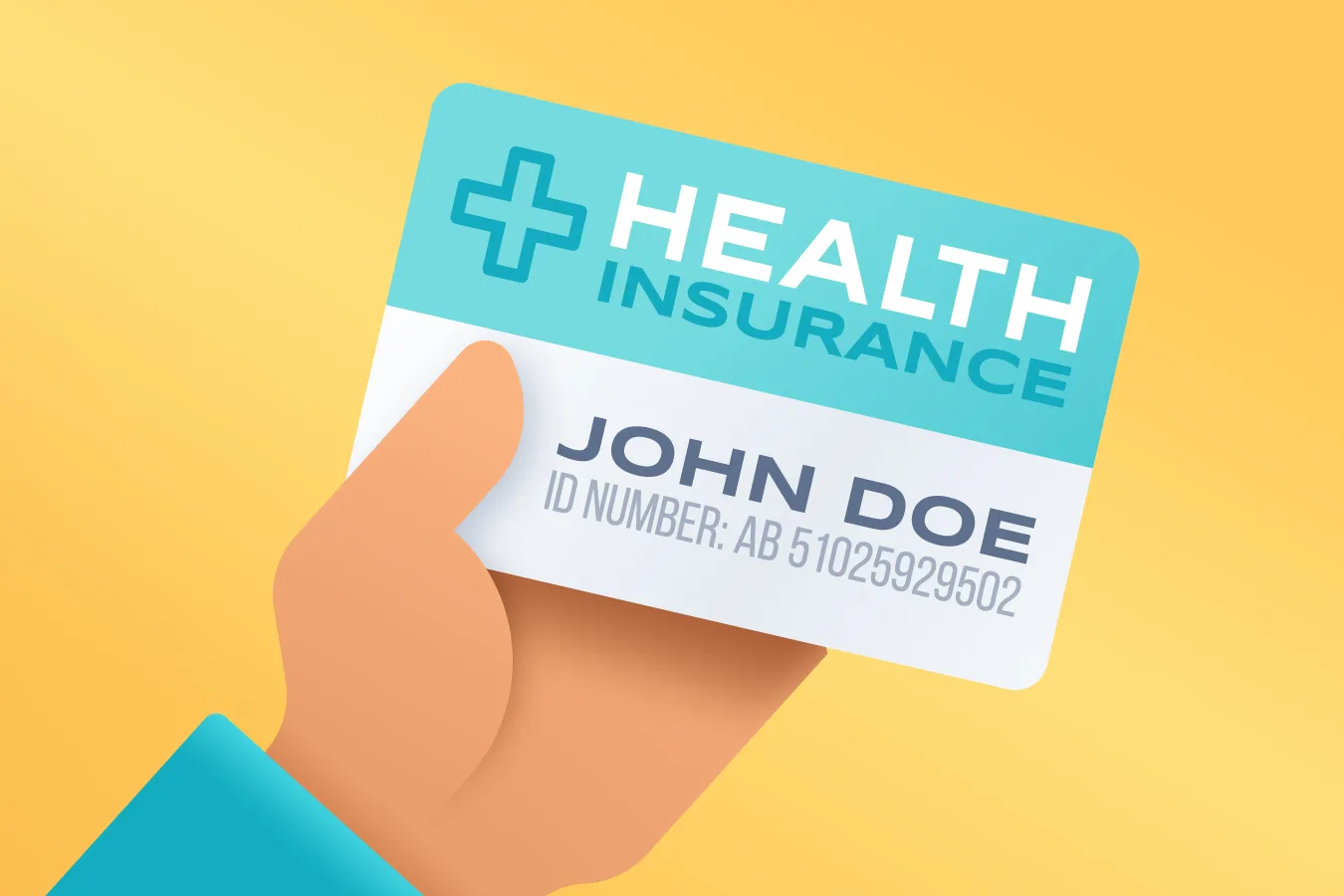Health Insurance in Philadelphia Tips That Will Change Your Life
Choosing the right health insurance plan in Philadelphia can be a daunting task with various options available.

Choosing the right health insurance plan in Philadelphia can be a daunting task with various options available. Your choice can greatly impact your access to healthcare and the financial burden you bear. This step-by-step guide will help you navigate the complex world of health insurance, covering everything from plan networks and costs to family size considerations and money-saving tips.
Step-by-Step Guide for Best Insurance
Assess Your Needs
Before you start comparing health insurance plans, it's crucial to assess your healthcare needs. Consider factors like your age, health condition, and any specific medical requirements. This evaluation will help you determine what type of coverage is best for you.
Compare Health Plan Networks
Health insurance plans typically have networks of doctors, hospitals, and specialists where you can receive care at lower rates. Make sure your preferred healthcare providers are in-network to maximize cost savings. If you have specific doctors you want to see, check whether they accept the insurance plan you're considering.
Understand the Average Cost of Health Insurance
The cost of health insurance can vary significantly depending on factors such as your age, location, and the type of plan you choose. On average, health insurance premiums in Philadelphia can range from a few hundred to over a thousand dollars per month. Consider your budget and how much you're willing to pay in monthly premiums when selecting a plan.
Learn How Plan Tiers Affect Costs
Health insurance plans are typically categorized into tiers: Bronze, Silver, Gold, and Platinum. These tiers differ in terms of coverage and costs. Bronze plans have lower premiums but higher out-of-pocket costs, while Platinum plans offer comprehensive coverage with higher premiums. Choose a tier that aligns with your healthcare needs and budget.
Consider How Family Size Affects Costs
If you're purchasing insurance for your family, the size of your household will affect your premiums. Most plans offer individual and family coverage options. Be sure to account for your family members' healthcare needs when choosing a plan. Some plans may also offer child-specific coverage options.
Explore Short-Term Health Insurance
Short-term health insurance plans are designed to provide temporary coverage during gaps in your insurance or for individuals in transitional periods. These plans can be more affordable than long-term options but may offer limited benefits. Consider short-term insurance if you're between jobs or waiting for other coverage to begin.
Understand Medicaid Health Insurance Coverage
Medicaid is a state and federally funded program that provides free or low-cost health coverage to eligible individuals and families with limited income. To determine if you qualify for Medicaid, visit the official website or contact the Pennsylvania Department of Human Services.
Investigate Child Health Coverage
If you have children, their healthcare needs are a top priority. Many health insurance plans offer pediatric coverage, including preventive services, vaccinations, and well-child visits. Make sure the plan you choose adequately covers your children's healthcare needs.
Explore Individual and Family Health Insurance Companies in Philadelphia
Philadelphia has several health insurance providers to choose from. Some of the prominent companies offering individual and family health insurance in the area include Independence Blue Cross, Aetna, Cigna, and UnitedHealthcare. Research these companies to find the one that best suits your needs.
Discover How to Save Money on Health Insurance
Saving money on health insurance is a concern for many individuals and families. Here are some tips to help you reduce your healthcare costs:
Shop Around: Compare quotes from multiple insurers to find the best rates.
Consider High-Deductible Plans: These plans often have lower premiums but higher deductibles. They can be a cost-effective choice for healthy individuals.
Utilize Health Savings Accounts (HSAs): If eligible, contribute to an HSA, which allows you to save money tax-free for medical expenses.
Take Advantage of Preventive Care: Many insurance plans cover preventive services at no additional cost.
Stay In-Network: Using in-network providers can save you money on out-of-pocket expenses.
Consider Health and Wellness Programs: Some insurers offer discounts for participating in wellness programs or meeting certain health goals.
Determine the Best Health Insurance Plan for You
The best health insurance plan for you ultimately depends on your unique circumstances. Consider your healthcare needs, budget, and priorities when making a decision. If you have chronic medical conditions or specific healthcare providers you want to see, prioritize plans that offer comprehensive coverage and include your preferred doctors in-network.
Understand How Health Insurance Covers Expenses
Health insurance plans typically cover various healthcare expenses, including:
Premiums: Monthly payments for your insurance coverage.
Deductibles: The amount you pay out-of-pocket before your insurance starts covering costs.
Copayments: Fixed amounts you pay for specific services or medications.
Coinsurance: A percentage of costs you share with your insurance company.
Out-of-Pocket Maximum: The maximum amount you'll have to pay in a year for covered services.
Review the plan's summary of benefits and coverage documents to understand how these elements apply to your specific plan.
Philadelphia Medical Insurance Statistics
Understanding the healthcare landscape in Philadelphia can also help you make an informed decision. According to recent statistics:
Philadelphia has a diverse healthcare ecosystem: The city boasts numerous hospitals, clinics, and healthcare providers, ensuring you have access to various medical services.
Healthcare costs in Philadelphia are competitive: While costs can vary, Philadelphia generally offers competitive healthcare pricing compared to other major U.S. cities.
Insurance coverage is widespread: A significant portion of Philadelphia residents have health insurance coverage, making it easier to access care.
Medicaid expansion has improved access: Medicaid expansion in Pennsylvania has expanded coverage for low-income individuals and families, increasing access to healthcare services.
Health Insurance Plans for Every Stage of Life
Your healthcare needs change as you progress through different stages of life. Here are some considerations for each stage:
Young Adults
Young adults may benefit from lower-cost, high-deductible plans.
Consider plans with preventive care coverage and options for wellness programs.
Evaluate whether you can stay on your parents' insurance until age 26 if that's an option.
Starting a Family
Prioritize plans with comprehensive maternity and pediatric coverage.
Check whether your preferred obstetricians and pediatricians are in-network.
Evaluate family coverage options and compare costs.
Middle-Aged Adults
Continue to prioritize preventive care and wellness programs.
Consider plans with access to specialists if you have specific health concerns.
Review your financial situation and adjust your coverage as needed.
Seniors
Explore Medicare options, including Original Medicare and Medicare Advantage plans.
Consider additional coverage, such as Medicare Part D for prescription drugs.
Evaluate plans that cover the healthcare providers and medications you need.
Dental, Vision, and Short-Term Insurance
In addition to medical coverage, consider supplementary insurance options:
Dental Insurance
Dental health is a crucial aspect of your overall well-being. Many health insurance plans may offer dental coverage as an add-on. Alternatively, you can purchase standalone dental insurance plans to ensure you have access to regular dental check-ups and treatments.
Vision Insurance
Vision insurance covers eye exams, prescription glasses, and contact lenses. Like dental insurance, vision coverage can be obtained as an add-on to your health insurance plan or as a separate policy.
Short-Term Insurance
Short-term insurance plans are designed to provide temporary coverage for specific needs, such as covering you during gaps in long-term coverage. These plans are often more affordable and can be a smart choice if you need coverage for a short period.
Should You Include Parents in Group Medical Insurance?
Including parents in your group medical insurance can be a good option if they meet certain eligibility criteria. Group insurance plans through employers often allow you to add family members, including parents, to your coverage. Consider the following factors:
Eligibility: Check with your employer or insurance provider to determine if your parents can be included in your group plan.
Cost: Adding family members to your group plan may increase your premiums. Compare the costs of individual and family coverage to determine which is more cost-effective.
Coverage: Ensure that the group plan adequately covers your parents' healthcare needs and includes their preferred healthcare providers.
Ultimately, the decision to include parents in your group medical insurance should be based on their healthcare needs, your financial situation, and the specific options available through your employer.
In conclusion, choosing health insurance in Philadelphia requires careful consideration of your unique needs, budget, and priorities. By following this step-by-step guide and researching your options thoroughly, you can make an informed decision that provides you and your family with the necessary coverage for a healthy and secure future. Keep in mind that healthcare is a dynamic field, so it's essential to review your insurance plan regularly and make adjustments as needed to ensure you have the coverage you require.

















